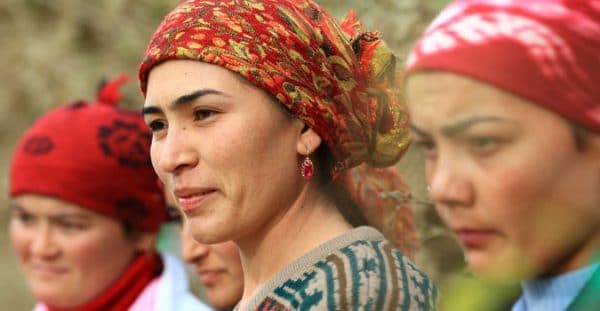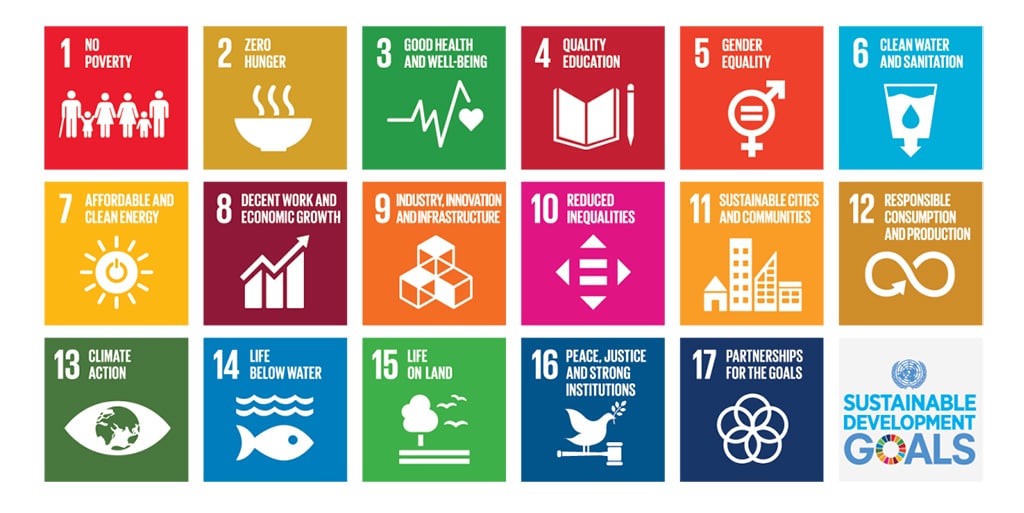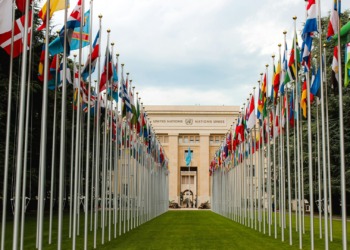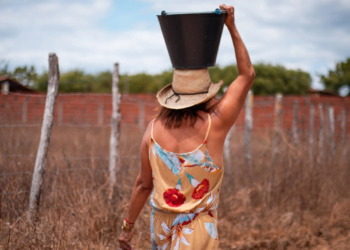Women’s economic empowerment in post-conflict contexts must be a top priority for the international community in the implementation of peacebuilding processes and global sustainable development programmes.
Post-conflict conditions increase the economic and social burdens of both women and men. The suffering that women face in armed conflicts in addition to the structural gender-based discrimination they experienced before the outbreak of violence causes them to face the harm of crisis and miss out on the benefits of recovery. Women suffer from pre-conflict legacies of poor investment in gender-equal economic and social development of education, health, food security, water, property, employment and land rights.
Women and girls were once considered to be the main carer of their family because of the traditional roles, idiosyncrasies and religious practices deeply established in most societies. These women face high levels of insecurity and sexual and domestic violence after conflicts. Both elements further restrict women’s access to economic empowerment, and gendered socioeconomic inequalities make women more vulnerable in conflicts and post-conflict contexts.
As conflicts have different impacts on women and men, a gender specific set of responses to their needs in post-conflict contexts is required to guarantee gender equality.
In order to promote the implementation of the United Nations Security Council Resolution 1325 on Women, Peace and Security, and those following, the UN, multilateral economic institutions, development banks and donors must focus on enforcing gender-responsive financing, planning and budgeting, including in-country and donor accountabilities.
Adopted in October 2000, UNSCR 1325 is considered to be a landmark Resolution. It aims to recognize the additional suffering of women and girls in violent contexts, armed conflicts and post-conflict situations, and to state the essential role of women in the prevention and resolution of conflicts, peace negotiations, peacebuilding, peacekeeping, humanitarian response and in post-conflict reconstruction.
This Resolution marked the beginning of the Agenda of Women, Peace and Security; it also fully interconnects with The 2030 Agenda, particularly with SDG 5 (gender equality and empowerment for all women and girls) and SDG 16 (peace, justice and strong institutions).
 Photo Credit: The Sustainable Development Goals
Photo Credit: The Sustainable Development Goals
At the present time, the international community and policy-makers are increasingly recognising women’s needs and their contributions to long-term recovery, as well as the democratization of countries in post-conflict contexts.
With this aim in mind, in 2010 the United Nations Security Council declared its committment to promoting a partnership between the UN systems and Member States to ensure that at least 15 per cent of the UN’s managed funds in support of peacebuilding would be dedicated to projects whose principal objective is to advance gender equality or empower women. This initiative provided a 7-Point Action Plan covering the key areas of intervention in recovery and peacebuilding, where women’s economic empowerment was determined by UN Women as one of the key areas.
It should be noted that the United Nations Peacebuilding Fund is working with its partners on the advancement of gender equality in post-conflict contexts. It is supported by the Gender Promotion Initiative to help meet the 15 per cent target and considers gender issues as part of the analysis, priority setting, budget allocation, implementation, monitoring and evaluation of its programmes.
But there is still a lot of work to be done. The investment in women’s economic empowerment has not yet received sufficient attention in post-conflict contexts and when speaking about the budgets dedicated to this aim, it has been reported that less than 5 per cent of proposed funding target gender equality or women’s specific needs.
It is important to point out that women are frequently marginalized from professional opportunities in favor of men. After the cessation of violent conflicts, men returning from war and demobilized soldiers often assume the economic activities during reconstruction and peacetime that women had previously been developing.
The integration of women in all of the post-conflict processes must be real and credible, and post-conflict financing, needs assessments and resources on the ground must benefit women and men equally in order to advance gender equality in society at large (at social, economic and political levels). Furthermore, women are usually under-represented in local and national governments in post-conflict contexts and therefore are not in a position to influence public decision-making processes that could guarantee physical and economic security for women.
In short, women’s priorities and needs are rarely taken into account in post-conflict recovery processes. In order to face this challenge, it is essential to:
- Integrate a gender perspective in post-conflict economic recovery decisions;
- Develop policies that promote sustainable livelihoods incomes for households headed by women, especially widows, and that assist post-conflict countries in generating decent jobs for women. This would improve their business skills, encourage them to join the workforce and would guarantee that the financial services required by women to start business are provided.
As stated previously, the integration of women in peacebuilding processes has gained momentum in the conversation, but the international community, civil society and concerned governments must continue to inspire and to take action by raising awareness of this challenge.
In this context, it is essential to mobilise women to be aware of their rights and to develop them as agents of peace, not only as victims of armed conflicts. Women’s economic empowerment is not only important because they contribute to a sustainable peacebuilding and to security in general, but because it is a key issue of realizing women’s equal rights.
Donors and the international community are key actors in the support of women’s organisations that advocate for gender equality in post-conflict contexts. These organisations provide specific mechanisms and culturally sensitive programmes that specifically guarantee women’s economic empowerment through peacebuilding institutions, including them as a target group in the framework of economic reconstruction programmes.
Mainstreaming gender equality and women’s economic empowerment in post-conflict situations requires an integrated framework of action and gender-sensitive approaches when designing peace and stability policies, including by local governments. We should also highlight that appropriate National Actions Plans, National Development Strategies, accountability tools, lessons learned reporting programmes and partnerships between the private, public sectors and multilateral organizations are needed in these kind of processes.
The economic empowerment of female refugees through education, skills training and employment must be another key element of concern for the international community; they must view it as essential to the process of building their resilience to new challenges and to secure decent work and livelihood in the future.
http://www.youtube.com/watch?v=SB7glE24aOs
In addition, it is fundamental to focus both on men and women in raising gender equality awareness, and to reconstruct positive masculinities through long-term approaches and transformative changes.
To conclude, the international community should move beyond the rhetoric of gender mainstreaming and further advance in putting gender-inclusive reforms theory into practice. Gender equality is not just women’s issue: it is about human rights. We all deserve better and fairer societies.



 Photo Credit:
Photo Credit: 






